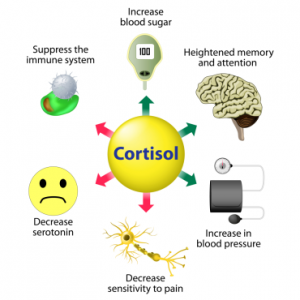 Here’s Why Coffee Can Contribute to Acne Based on Research. For decades now dermatologists and nutritionists have debated whether our diet and drinks play a part in most cases of acne. Part of the growing interest about the effects of stimulants especially coffee on acne is largely due to the observations reported by the American Osteopathic College of Dermatology. Doctors working among remote jungle tribes observed that acne literally does not affect the natives. We take a closer look at what several research sources say below.
Here’s Why Coffee Can Contribute to Acne Based on Research. For decades now dermatologists and nutritionists have debated whether our diet and drinks play a part in most cases of acne. Part of the growing interest about the effects of stimulants especially coffee on acne is largely due to the observations reported by the American Osteopathic College of Dermatology. Doctors working among remote jungle tribes observed that acne literally does not affect the natives. We take a closer look at what several research sources say below.
Coffee and Acne: What Does Research Say?
It’s common knowledge that a major component of coffee is caffeine. Although caffeine also exists in many other forms of beverages such as some brands of tea and soda drinks, the caffeine in coffee is particularly acidic. Even decaf coffee has caffeine, sometimes as much as 20mg per 12oz cup.
Why is that a problem?
Well, acidic foods (acid-forming foods) are a category of foods that reduce the pH of the body to below 7. When this happens, it’s a key trigger of stress and inflammation in the human body, and this manifests in several ways. In the context of coffee, inflammation is a direct contributor to cystic acne. A type of acne that penetrates deeply into the skin causing those dreaded pus-filled pimples.
One study published by the US National Library of Medicine National Institutes of Health shows that caffeine increased the epinephrine (adrenaline) levels in even normal healthy subjects by up to 32%.
 Furthermore, long-time caffeine researcher James D. Lane a professor of medical psychology at Duke University, Durham confirms that caffeine does indeed exaggerate the stress response.
Furthermore, long-time caffeine researcher James D. Lane a professor of medical psychology at Duke University, Durham confirms that caffeine does indeed exaggerate the stress response.
American nutritionist Paula Simpson also adds her voice to the debate about how coffee can help clog up your facial pores. She says that the fallout of elevated stress levels – triggered by coffee consumption among other things – is that it flares up your sympathetic nervous system thereby pumping out excess stress hormones. Cortisol is one of these hormones, and the large cortisol spike people get from consuming coffee is what gives them so much energy for some hours afterward. But at elevated levels, cortisol can increase the skin’s oil production and eventually result in acne and other breakouts. In fact, increased cortisol levels in both male and female subjects is one of caffeine’s most notorious side effects.
Of course, the caffeine in coffee also disrupts the normal sleep patterns further elevating stress levels. Consequently, a sustained level of elevated stress hormones will upset the body’s insulin balance, cause higher sebum production, affect the skin repair process, and the vicious acne cycle continues.
Coffee and the “Leaky Gut Syndrome.”
 Another way coffee and acne are linked is through the “leaky gut syndrome.” A person suffering from leaky gut has high acidity in their digestive tract. This acidic condition disrupts the natural balance in the stomach and allows bad bacteria to flourish. With time, the junctions in their intestinal lining will weaken and break and interfere with nutrient absorption causing inflammation in their guts. People experiencing leaky gut are especially sensitive to some particular foods, and they will notice acne flare-ups not too long after they consume such items. Again, coffee is one such think to avoid. In addition, these kind of foods inhibits your body cells’ ability to repair themselves, another factor that decreases how quickly skin heals from acne. The gut-skin-brain axis is a new area of research that has found much promise and is currently undergoing several studies and clinical trials.
Another way coffee and acne are linked is through the “leaky gut syndrome.” A person suffering from leaky gut has high acidity in their digestive tract. This acidic condition disrupts the natural balance in the stomach and allows bad bacteria to flourish. With time, the junctions in their intestinal lining will weaken and break and interfere with nutrient absorption causing inflammation in their guts. People experiencing leaky gut are especially sensitive to some particular foods, and they will notice acne flare-ups not too long after they consume such items. Again, coffee is one such think to avoid. In addition, these kind of foods inhibits your body cells’ ability to repair themselves, another factor that decreases how quickly skin heals from acne. The gut-skin-brain axis is a new area of research that has found much promise and is currently undergoing several studies and clinical trials.
There is still a lot of research going on about the connection between coffee and acne, but it’s clear that coffee (caffeine) can exacerbate acne though the severity will vary from one person to the other.

 If you need to kick the caffeine habit there are many alternatives to coffee that taste just as delicious and can provide the necessary energy to get moving. There are many possible reasons why you might need to stop coffee, including stress, anxiety or a medical condition that requires you to completely cut out caffeine. One of the most common health conditions coffee exacerbates is acid reflux (GERD). Coffee is actually fairly acidic and can cause issues for those predisposed to problems with stomach acid. Other issues include
If you need to kick the caffeine habit there are many alternatives to coffee that taste just as delicious and can provide the necessary energy to get moving. There are many possible reasons why you might need to stop coffee, including stress, anxiety or a medical condition that requires you to completely cut out caffeine. One of the most common health conditions coffee exacerbates is acid reflux (GERD). Coffee is actually fairly acidic and can cause issues for those predisposed to problems with stomach acid. Other issues include  Coffee and especially its key ingredient caffeine have been shown to lead to weight gain in several studies. One from the Western Australian Institute for Medical Research wasn't even looking into weight changes but came upon it in their data. They found that too much coffee, including decaffeinated, resulted in a change in the utilization of fat in the liver and caused abnormal retention of fat within cells. This resulted in a higher degree of glucose intolerance and increased insulin resistance. Caffeine in particular has been known to stimulate cortisol production. Cortisol is the stress hormone that was originally designed to give us a jolt to face a danger or stressful situation. This helped to save us from an imminent physical threat. Cortisol serves another purpose in that it promotes the release of insulin which we need to move glucose into our cells.
Coffee and especially its key ingredient caffeine have been shown to lead to weight gain in several studies. One from the Western Australian Institute for Medical Research wasn't even looking into weight changes but came upon it in their data. They found that too much coffee, including decaffeinated, resulted in a change in the utilization of fat in the liver and caused abnormal retention of fat within cells. This resulted in a higher degree of glucose intolerance and increased insulin resistance. Caffeine in particular has been known to stimulate cortisol production. Cortisol is the stress hormone that was originally designed to give us a jolt to face a danger or stressful situation. This helped to save us from an imminent physical threat. Cortisol serves another purpose in that it promotes the release of insulin which we need to move glucose into our cells.